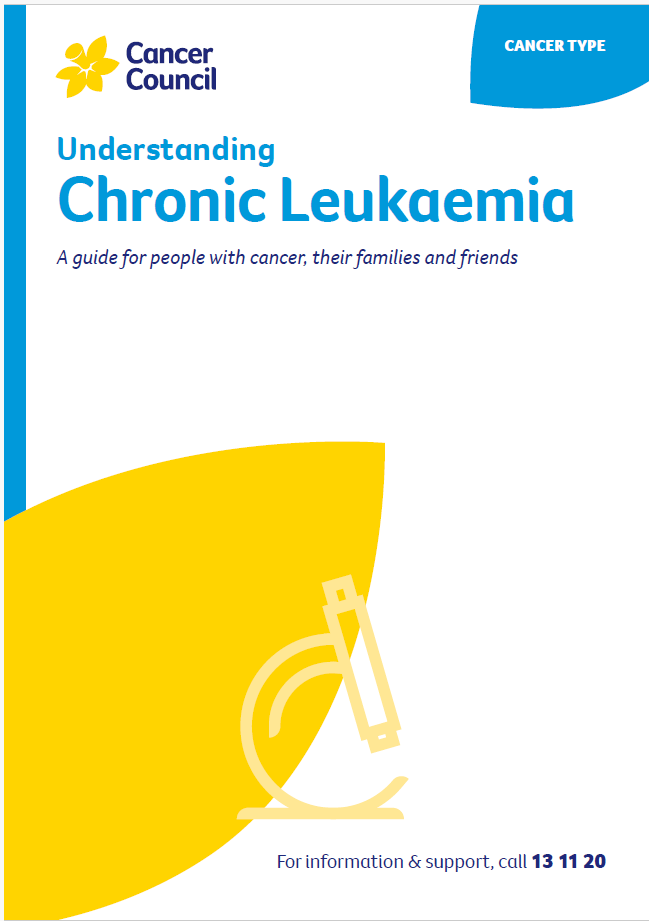- Home
- Chronic lymphocytic leukaemia (CLL)
- Diagnosis
- Staging and prognosis
Staging and prognosis for CLL
These tests are often used by doctors to work out how far the chronic lymphocytic leukaemia (CLL) has progressed. This is known as staging and it helps guide the best treatment options for your situation.
Learn more about:
Staging CLL
There are two staging systems commonly used for CLL: the Binet system and the Rai system. In Australia, most doctors use the Binet system.
Binet staging system
| stage A | There are a high number of abnormal white blood cells but fewer than three enlarged areas of lymph tissue (lymph nodes, liver and/or spleen). |
| stage B | There are a high number of white blood cells and three or more enlarged areas of lymph tissue. |
| stage C | There are a high number of white blood cells with a low number of red blood cells (anaemia) and/or platelets (thrombocytopenia), and enlarged lymph nodes or spleen. |
Rai staging system
The Rai system divides CLL into five stages of 0 to 4. Rai also separates these stages into low-risk, intermediate-risk and high-risk groups. It is used mainly in the United States.
Prognosis
Prognosis means the expected outcome of a disease. You will need to discuss your prognosis with your haematologist, who will be able to give you an indication of the stage of leukaemia you have.
It is not possible for anyone to predict the exact course of the disease. Factors used to assess your prognosis include your test results, particularly the genetic tests. Your doctor can give you an idea about how CLL may respond to treatment and common issues that affect people with CLL.
While CLL is generally not a curable disease, advances in how CLL is treated have improved the outlook for people. For some people, CLL progresses slowly and they live a normal life span without ever needing treatment. For others, CLL progresses more quickly, but treatment controls the CLL and allows them to have a good quality of life for many years.
→ READ MORE: Your health care team for CLL
Podcast: Coping with a Cancer Diagnosis
Listen to more of our podcast for people affected by cancer
Dr Chun Kei Kris Ma, Clinical Haematologist, Western Sydney Local Health District (clinical update); Delphine Eggen, Consumer; Dr Robin Gasiorowski, Staff Specialist, Haematology, Concord Hospital; Karl A Jobburn, Haematology Clinical Nurse Consultant, Liverpool Hospital; Yvonne King, 13 11 20 Consultant, Cancer Council NSW; Heather Mackay, Clinical Nurse Consultant, Westmead Hospital; Jennifer Paton, Consumer.
View the Cancer Council NSW editorial policy.
View all publications or call 13 11 20 for free printed copies.
